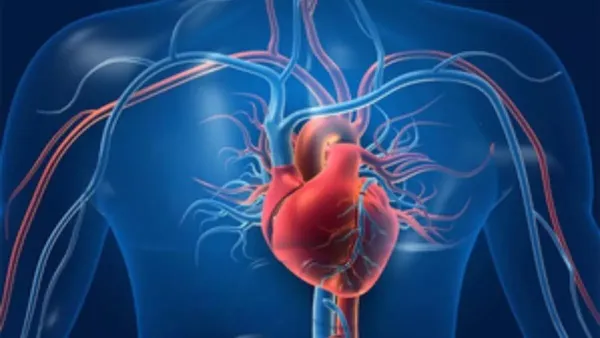
Delhi Delhi: A team of researchers in South Korea has developed a new artificial intelligence (AI)- based algorithm that uses electrocardiographs (ECG) 2 data to predict the risk of cardiovascular events and heart deaths. To create algorithm, the team of Inha University Hospital analyzed the standard 12-Leed Electrocardiograph (ECG) 2 data taken from about five lakh cases. This new algorithm can identify people with the highest risk of cardiovascular events and mortality by predicting the organic age of the heart, based on the way the heart functions. For example, a person who is 50 years old but his heart health is poor, his biological heart can be 60 years, while a person aged 50 years is optimal and his biological heart can be 40 years.
Associate Professor Yong-Bake at Inha University Hospital said, “Our research has shown that when the biological age of the heart increases seven years older than its chronic age, the risk of mortality and major adverse cardiovascular events due to all reasons increases rapidly.” “Conversely, if the algorithm considered the biological heart to be seven years younger than a chronological age, it reduced the risk of death and major adverse cardiovascular events.” The study has shown that the integration of AI in clinical diagnosis presents new opportunities to increase the future accuracy in cardiology. “The use of AI to develop algorithms in this way leads to a potential paradigm in the cardiovascular risk evaluation,” Bake said. For the study, the team developed a deep nerve network and trained at a sufficient dataset of 425,051 on the 12-Leed ECG collected in fifteen years. It was later valid and tested on an independent group of 97,058 ECG. In the statistical model, the AI ECG-heart age increased by 62 percent in mortality and 92 percent in MACE due to all reasons when the age of AI ECG-heart was seven years older. In contrast, the AI ECG heart age, which was seven years shorter than its chronological age, reduced the risk of mortality for all reasons by 14 percent and MACE by 27 percent.
MACE is major adverse cardiovascular events and include heart attacks, strokes, cardiovascular deaths, and reinforcement processes (such as angioplasty and bypass surgery).
“This study confirms the transformative ability of AI in refining clinical assessment and improving the patient's results,” Bake said.
The study was presented at the EHRA 2025, a scientific conference of the European Society of Cardiology (ESC) running in Vienna, Austria.